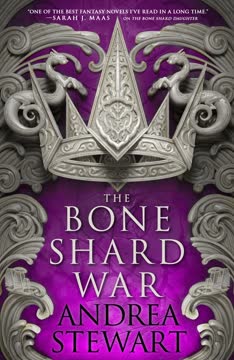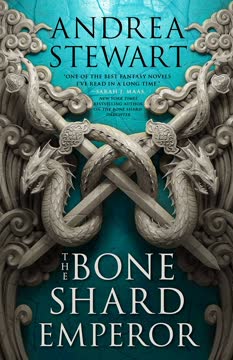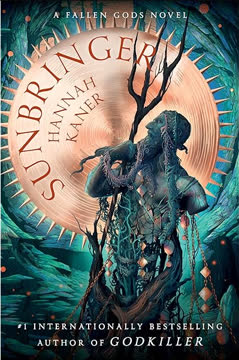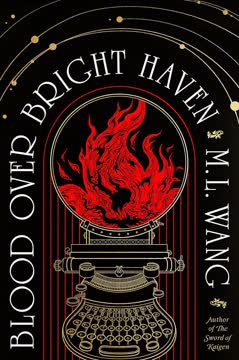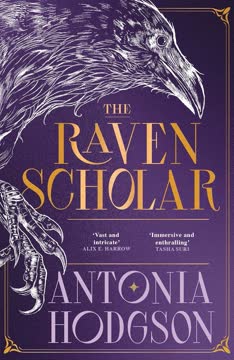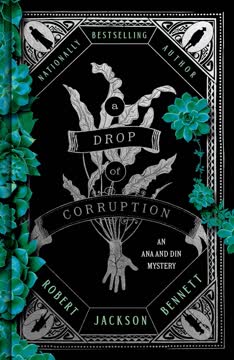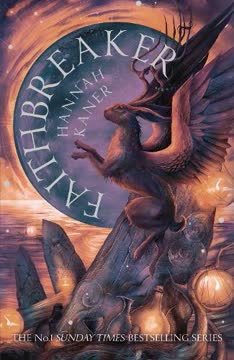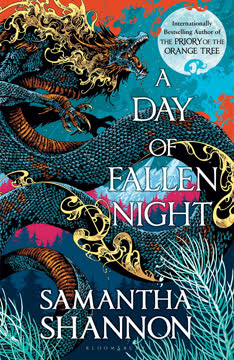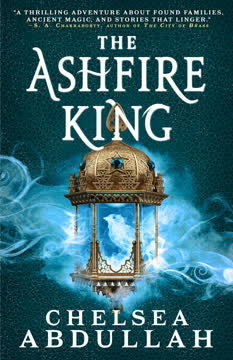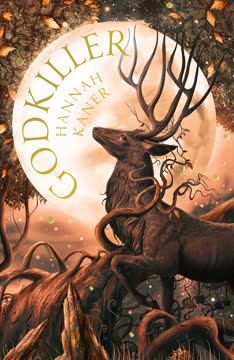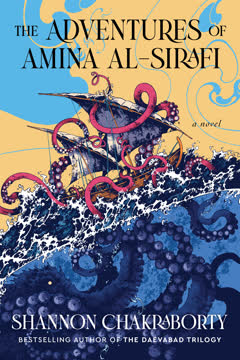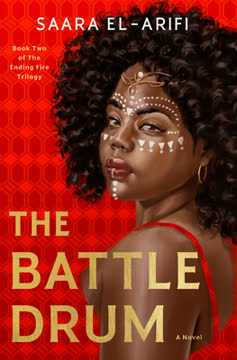Plot Summary
Shards and Shadows Awaken
The story opens with the Empire still reeling from the aftermath of war. Lin, now Emperor, struggles to hold the islands together as witstone runs low and old prejudices against the Alanga persist. Ragan and Nisong, both marked by loss and anger, begin their own quest for power, haunted by the ghosts of their pasts and the shards that bind them. Jovis, presumed dead, is a ghost in his own life, forced into servitude by Kaphra's commands, while the ossalen Mephi remains his only true companion. The world is tense, uncertain, and every character is shadowed by the choices and traumas that have shaped them.
Empire on the Brink
Lin's attempts to govern are met with resistance from governors like Iloh, who threaten secession unless witstone mining resumes. The Empire's resources are stretched thin, and Lin is forced into a political marriage to keep the islands united. Meanwhile, the Shardless Few, led by Dione, gather strength, and the fragile peace is threatened by assassinations and sabotage. Lin's grief for Jovis lingers, coloring every decision, as she tries to balance mercy with the hard realities of leadership.
Ghosts of the Past
Jovis, under Kaphra's control, is forced to commit acts against his will, his identity eroding with each command. Nisong, a construct with memories of a life stolen, is driven by vengeance and a longing for belonging. Both are shaped by the ghosts of those they've lost—Jovis by Emahla and Lin, Nisong by her friends and her creator. Their journeys are marked by guilt, regret, and the desperate hope for redemption or revenge.
Fractured Alliances Form
As threats multiply, old enemies are forced to work together. Lin and Phalue, once at odds, join forces to seek the legendary white-bladed swords, hoping to counter the growing power of the Alanga. Ragan and Nisong, both outsiders, form a dangerous partnership, while Dione's Shardless Few splinter under the weight of conflicting ideals. Loyalties shift, and every alliance is fraught with suspicion and the risk of betrayal.
Swords and Sacrifice
The search for the white-bladed swords becomes a race against time, with each faction seeking them for their own ends. The swords, relics of a violent past, are both a promise of protection and a threat of annihilation. Sacrifices are made—of love, of innocence, of lives—as characters are forced to choose between personal happiness and the greater good. The true cost of power is revealed in blood and loss.
The Price of Power
The secrets of witstone and ossalen are uncovered: the islands themselves are living ossalen, and mining their bones risks destruction. The pool that can heal also steals memories, forcing characters to weigh survival against the loss of self. Lin and Jovis, reunited briefly, must confront the scars left by magic and war, while Sand (Nisong) faces the consequences of her actions and the possibility of change.
Storms and Betrayals
As a literal storm rages, so do the storms of betrayal and ambition. Ragan and Dione's uneasy alliance fractures, and Ragan's willingness to destroy entire islands for power is revealed. The sinking of Riya is both a physical and moral catastrophe, shattering the Empire's sense of security and forcing every character to confront the limits of their strength and the depth of their fears.
The Sinking of Riya
Ragan uses the white-bladed sword to sink Riya, killing thousands and sending shockwaves through the Empire. Lin, Jovis, and countless refugees flee for their lives, haunted by the enormity of the loss. The event marks a turning point, exposing the fragility of the world and the dangers of unchecked power. The survivors are left to pick up the pieces, forever changed by what they have witnessed.
The Siege of Imperial
Imperial City is besieged by the combined forces of Ragan and Dione, while Lin and her allies make a desperate stand. The palace becomes a last refuge for the innocent, and the lines between friend and foe blur as old grievances resurface. The battle is brutal, with magic and steel clashing amid the ruins of a once-great city. Every character is tested, and the fate of the Empire hangs in the balance.
The Fall of the Emperor
Overwhelmed by loss and recognizing the limits of her power, Lin surrenders the throne to Ranami, trusting her to build a new order. The Sukai dynasty ends, and the dream of a just Council is born. Lin's journey from ruler to ordinary citizen is marked by pain, humility, and the hope that something better can rise from the ashes. The cost of leadership is finally paid in full.
The Last Stand
As Ragan attempts to sink Imperial, Jovis and Ayesh pursue him into the heart of the island. Jovis, wounded and afraid, finds the courage to face his fears and makes the ultimate sacrifice to stop Ragan. The battle in the depths is both physical and existential, a struggle for the soul of the Empire. In the end, it is not power but love, loyalty, and the willingness to change that determine the outcome.
The Council Rises
With Ragan defeated and the old power structures broken, Ranami leads the formation of a Council, inviting representatives from every island. The process is messy, contentious, and uncertain, but it is rooted in the hard-won lessons of the past. The Empire is no longer ruled by a single hand, but by the collective will of its people. The future is uncertain, but hope flickers anew.
Memory and Forgiveness
The pool that heals Jovis also takes his memories, leaving him a stranger to those who love him. Sand, once Nisong, is given a second chance, but must live with the weight of her past. Forgiveness is not easily won, and the scars of war linger. Yet there is grace in survival, and in the willingness to keep trying, even when the way forward is unclear.
New Bonds, New Beginnings
Phalue and Ranami, reunited, look to the future with hope, considering adoption and the work of rebuilding. Ayesh, no longer desperate to prove herself, finds a place in the new world. Sand and Lozhi, both outcasts, forge a bond that transcends their origins. The world is still dangerous, but new connections offer the promise of healing and growth.
The Weight of Survival
Every character must reckon with what they have done to survive. Lin, no longer Emperor, finds purpose in research and quiet acts of service. Jovis, stripped of memory, must choose whether to forge new bonds or remain adrift. The survivors of Riya and Imperial rebuild, haunted by loss but determined to endure. The story does not promise easy answers, but it honors the struggle to keep going.
The Shape of Hope
Seasons pass, and the world slowly heals. The Council debates, argues, and sometimes falters, but the work of building a better Empire continues. Lin and Jovis, changed by all they have lost, find their way back to each other—not as they were, but as they are now. The ossalen grow into islands, and the cycle of life and death continues. In the end, hope is not a promise of perfection, but the stubborn belief that something good can still be made from all that has been broken.
Characters
Lin Sukai
Lin is the Emperor of the Phoenix Empire, a woman forged from loss, trauma, and the impossible expectations of her father. She is both Alanga and construct, carrying the weight of her dynasty's crimes and her own failures. Lin's journey is one of relentless self-examination: she is driven by a desire to be better than her father, to protect her people, and to atone for the suffering caused by the Empire's systems. Her relationships—with Jovis, Phalue, and her ossalen Thrana—reveal her capacity for love and vulnerability, but also her deep loneliness. Lin's arc is one of humility: she learns to let go of power, to trust others, and to accept that true change requires sacrifice and the willingness to step aside.
Jovis
Once a smuggler and folk hero, Jovis is marked by guilt, loss, and the scars of servitude. Controlled by Kaphra's bone shard commands, he is forced to commit atrocities, his sense of self eroding with each act. His bond with Mephi, his ossalen, is his anchor, and his love for Lin is both a source of hope and pain. Jovis's psychological journey is one of survival, shame, and the struggle to reclaim agency. Even after being freed, he is haunted by what he has done and what he has lost—including his own memories. His final acts are those of courage and self-sacrifice, and his story is a meditation on the cost of survival and the possibility of starting anew.
Sand (Nisong)
Once a tool of vengeance and destruction, Sand (formerly Nisong) is a construct filled with the memories of a stolen life and the pain of abandonment. Her relationship with Ragan is fraught with manipulation and longing, while her bond with Lozhi, Ragan's ossalen, becomes a source of genuine connection. Sand's arc is one of self-realization: she recognizes the harm she has caused and chooses, at great cost, to help Lin and the Empire. Her transformation is not one of easy redemption, but of hard-won self-acceptance and the willingness to live with the consequences of her actions.
Ragan
Ragan is a former monk, an Alanga whose life is defined by resentment, ambition, and a desperate need for validation. His partnership with Nisong is both a source of strength and a reflection of his inability to trust or love without domination. Ragan's psychological profile is marked by insecurity and rage: he seeks to control others, to destroy what he cannot possess, and to remake the world in his own image. His willingness to sink entire islands for power reveals the depths of his nihilism. In the end, Ragan is undone by his own inability to change, a tragic figure whose wounds become weapons.
Dione (Gio)
Dione, once Gio, is the last of the old Alanga, a leader of the Shardless Few whose ideals have been warped by centuries of loss and betrayal. He is both mentor and manipulator, driven by a need to atone for his role in the Alanga purge and to prevent history from repeating. Dione's psychological complexity lies in his inability to let go of the past: he is haunted by the friends he lost, the mistakes he made, and the knowledge that his quest for justice has become a quest for vengeance. His arc is one of reluctant surrender, as he passes the torch to a new generation.
Phalue
Phalue is the governor of Nephilanu, a woman of strength, impulsiveness, and deep loyalty. Her relationship with Ranami is a source of growth: through love, she learns to listen, to question her own privilege, and to fight for justice beyond her own interests. Phalue's arc is one of transformation from a blunt instrument of power to a leader capable of empathy and self-doubt. Her struggles with motherhood, governance, and the shifting tides of war reveal her as a character always striving, never complacent.
Ranami
Ranami is a former gutter orphan, a woman who has clawed her way from the margins to a place of influence. Her marriage to Phalue is both a partnership and a crucible, forcing her to reconcile her ideals with the realities of power. Ranami's psychological journey is one of self-doubt, resilience, and the gradual acceptance of leadership. She becomes the architect of the new Council, driven by a fierce commitment to justice and the belief that the Empire can be remade for the better. Her compassion is her greatest strength, and her willingness to listen is what ultimately unites the fractured world.
Ayesh
Ayesh is a young Alanga, adopted by Phalue and Ranami, whose life on the streets has left her both tough and vulnerable. Her arc is one of coming-of-age: desperate to prove herself, she throws herself into danger, but ultimately learns that worth is not measured by violence or sacrifice. Ayesh's journey is a meditation on the scars of childhood, the longing for family, and the possibility of healing.
Mephi
Mephi, Jovis's ossalen, is more than a magical beast: he is a source of wisdom, comfort, and comic relief. His bond with Jovis is the emotional heart of the story, a reminder that love and loyalty can survive even the worst of times. Mephi's growth—from a playful pup to a wise, island-sized creature—mirrors the journey of the world itself: from innocence, through suffering, to a new beginning.
Thrana
Thrana, Lin's ossalen, is a symbol of the world's magic and its vulnerability. Her growth into an island is both a literal and metaphorical transformation, representing the cycles of life, death, and rebirth. Thrana's presence is a reminder of the costs of power, the dangers of exploitation, and the possibility of renewal. Her bond with Lin is one of mutual respect and love, a partnership that endures even as the world changes.
Plot Devices
Bone Shard Magic
The central device of the series, bone shard magic, is a system that allows the powerful to control constructs, people, and even the world itself. It is a metaphor for exploitation, trauma, and the dangers of unchecked authority. The magic's cost—shard sickness, loss of memory, and the destruction of the ossalen (and thus the islands)—is a constant reminder that power is never free. The narrative structure uses bone shard magic to explore questions of agency, consent, and the ethics of leadership.
Multiple Points of View
The story is told through the eyes of many characters, each with their own voice, trauma, and agenda. This structure allows the reader to see the world's complexity, the ways in which every action has unintended consequences, and the impossibility of simple solutions. The shifting perspectives also create dramatic irony, as characters act on incomplete or mistaken information, and the reader is left to piece together the truth.
Foreshadowing and Cyclical History
The narrative is haunted by the history of the Alanga, the Sukai dynasty, and the cycles of violence and betrayal that have shaped the Empire. Foreshadowing is used to build tension—hints of the ossalen's true nature, the dangers of witstone mining, the consequences of memory loss. The story's structure mirrors its themes: history repeats, but each generation has the chance to break the cycle, if they are willing to pay the price.
Artifacts and Swords
The white-bladed swords and other Alangan artifacts are more than weapons: they are symbols of the world's brokenness and the possibility of healing. The quest for the swords drives the plot, but their true significance is only revealed gradually. They are both the means of destruction and the hope for a new order, embodying the story's central tension between power and responsibility.
Memory and Identity
The pool that heals but steals memories is a powerful device, forcing characters to choose between life and the loss of self. The theme of memory—what is kept, what is lost, what can be rebuilt—runs through every arc. The story asks whether it is possible to forgive, to change, and to start again, even when the past cannot be reclaimed.
Analysis
Andrea Stewart's The Bone Shard War is a sweeping, emotionally resonant conclusion to a trilogy that interrogates the nature of power, trauma, and the possibility of change. At its heart, the novel is about the cost of survival—personal, political, and magical. Every character is marked by loss, forced to reckon with the harm they have done and the harm done to them. The story refuses easy answers: leadership is shown to be both necessary and deeply flawed, and the dream of a just world is always complicated by the realities of fear, anger, and the desire for control. Yet the novel is also fiercely hopeful. Through the formation of the Council, the healing of old wounds, and the forging of new bonds, Stewart suggests that even in a world broken by violence and betrayal, it is possible to build something better—not through heroics or grand gestures, but through the slow, painful work of listening, forgiving, and trying again. The lessons of the book are clear: power must be shared, the past must be acknowledged, and hope is not a promise of perfection, but the stubborn belief that the future can be different.
Last updated:
Review Summary
The Bone Shard War receives mixed reviews as the final installment of The Drowning Empire trilogy. Many readers praise the satisfying conclusion, character development, and unique magic system. Some find the pacing slow and repetitive in parts, with excessive dialogue and negotiations. The time jump at the beginning surprises some readers. Critics argue the book could have been shorter and more focused. Despite these concerns, most reviewers appreciate the emotional impact, world-building, and overall series arc. The animal companions, especially Mephi, are consistently highlighted as fan favorites.
